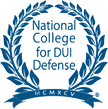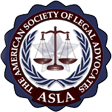Our Defense Attorneys Can Help
You do not have to assume you will be found guilty and face significant consequences. To learn more about defending yourself, contact the Seattle criminal trespass lawyers at Emerald City Law Group as soon as possible. Call 206-973-0407 to schedule a free, initial consultation to discuss your options.
There are always limitations to where you can go and when – certain properties may be available to you only at certain times. Other properties are never open to you because the owners have every right to limit your access to their land and buildings. Even public property like city parks may have restrictions such as closing at night. If you ignored your limited access to another person or business’s property in Washington or you misunderstood where you were allowed, you could be charged in Seattle. If the police arrest you for being on a property without permission, you may face a misdemeanor charge of criminal trespassing.
Criminal Trespassing in Seattle
The Revised Code of Washington (RCW) 9A.52.070 outlines first-degree criminal trespass. You can be found guilty of this offense if there is evidence you knowingly entered or remained unlawfully in a building. You can be accused of going into or staying within a building unlawfully if you did so without the owner or manager’s permission. This does not require what you may think of as breaking and entering. You could have walked into an open door, or you could have been in the building with consent at first, yet then remained after you were told to leave. Whatever the scenario, criminal trespassing in the first degree is a gross misdemeanor.
Depending on the circumstances, you may be charged with second-degree criminal trespass instead. This is a lesser charge, but under RCW 9A.52.080, you can be arrested and found guilty of this offense if you knowingly enter or remain unlawfully in or upon premises under circumstances that do not constitute first-degree criminal trespass. This is charged as a misdemeanor.
The most significant difference between the first- and second-degree criminal trespass offenses is the relevant location. In criminal trespass of the first degree, the statute specific denotes being within a building. You must be found trespassing within a house, business, or another type of structure. In second-degree criminal trespass, you do not have to be found within a building. You may be outdoors, on another person’s land.
Penalties for Criminal Trespassing
The potential penalties for criminal trespass depend on the degree of the crime. If you have been charged with a gross misdemeanor for first-degree criminal trespass, you face:
- Up to 364 days in jail
- Up to a $5,000 fine
If you have been charged with a misdemeanor for second-degree criminal trespass, the potential penalties include:
- Up to 90 days in jail
- Up to a $1,000 fine
Our Seattle criminal trespass lawyers may be able to fight for you to receive an alternative punishment than jail time or fines. Some courts are willing to convert jail time to hours of community service. This can enable you to work through your punishment while still working or going to school. Depending on your situation, drug or alcohol counseling may be beneficial. If you currently suffer from addiction, we can strive to get you the help you need instead of incarceration.
Possible Collateral Consequences
The punishment you must endure for a criminal trespass conviction can go far beyond a fine and some jail time. A misdemeanor conviction can have a number of additional consequences, including:
- A permanent criminal record
- Difficulty obtaining a job
- Rejections from colleges and universities
- Difficulty obtaining financial aid, including grants and scholarships
- Trouble getting approved for an apartment
- Being turned down for loans
- A decrease in your child custody or visitation
- Effects on your immigration status
- Difficult traveling abroad, including into Canada
Defending Against Criminal Trespass
When you are accused of criminal trespass, there are multiple statutory defenses that may be available to you. Under RCW 9A.52.090, it is a defense that:
- The relevant building was abandoned,
- The premises were open to the public at the time and you adhered to any lawful conditions imposed on access to the premises,
- You reasonably believed the owner of the premises, or the person empowered to grant access, would have permitted you to enter or remain, or
- You were attempting to serve a legal process, you did not enter a private residence or other building not open to the public, and your entry was reasonable and necessary to serve the other person.
Call Emerald City Law Group Today
If any of these factors apply to your situation, contact the Seattle criminal defense attorneys at Emerald City Law Group, Call 206-973-0407 for a free and confidential case evaluation. We’ll discuss your case and options.






